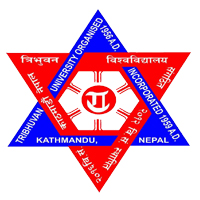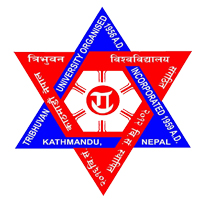Overview
Central Department of Biotechnology Tribhuvan University (TU)
Biotechnology is a rapidly evolving field that encompasses various sectors of human civilization. From agriculture to medicine, biotechnology offers unique opportunities for exploiting biological systems and exploring fundamental life processes. Recognizing its potential, Tribhuvan University (TU) established the Central Department of Biotechnology (CDBT) in 2008, paving the way for groundbreaking research and education.
Vision:
CDBT-TU aspires to become a world-class biotechnology institute dedicated to improving lives and preserving nature. By focusing on excellence, innovation, and service, the department aims to significantly advance biotechnology globally.
Mission:
The mission of CDBT-TU is to explore and conduct country-specific, world-competent biotechnology-based teaching and research. The department strives to make significant contributions to the biotechnology field through enthusiasm and dedication and address the nation's specific needs.
Goals
-
Establish CDBT as the preferred choice for bioscience study and teaching, known for its quality education and research programs.
-
Equip CDBT laboratories as advanced model teaching and research facilities, providing state-of-the-art infrastructure for students and researchers.
-
Emphasize application-oriented research that directly benefits the nation and addresses its pressing challenges.
-
Identify and nurture talented biotechnologists who can contribute effectively to various sectors of the country.
-
Produce competent biotechnologists who are well-prepared for the demands of their respective fields.
-
Elevate CDBT-TU to the status of an academic Center of Excellence, renowned for its outstanding contributions to biotechnology education and research.
-
Ensure the economic viability of the institute through biotechnology-related initiatives.
-
Encourage international collaborations by aiming for at least one faculty member involved in a global research project.
Objectives
To fulfill its mission and goals, CDBT-TU has set forth the following objectives:
-
Create well-furnished premises with attractive and functional academic and research spaces, providing an ideal environment for learning and innovation.
-
Enrich laboratories with highly sophisticated equipment, enabling advanced research and practical training for students.
-
Develop exemplary biotechnology teaching courses that blend theoretical knowledge with practical applications.
-
Attract and enroll competent postgraduate students, PhD scholars, postdoctoral researchers, and scholars in the biotechnology field.
-
Increase the number of student intakes to meet the growing demand for biotechnologists in the country.
-
Publish original research articles in high-impact, cited journals, contributing to the global scientific knowledge base.
-
Enhance the capability development of faculty members for innovative national and international research projects that align with their areas of specialization.
-
Ensure each faculty member is engaged in at least one funded research project.
-
Foster the development of scientific knowledge, skills, and innovative ideas among faculty, staff, and students.
-
Facilitate the overall growth and development of faculties, staff, and students through continuous learning and professional development initiatives.
The Central Department of Biotechnology at Tribhuvan University is dedicated to advancing biotechnological innovations, producing competent professionals, and contributing to the nation's economic growth and development. With its vision, mission, goals, and objectives, CDBT-TU aims to create a significant impact in the biotechnology field and establish itself as a leading institution in the region.
Salient Features
-
Green House: The Central Department of Biotechnology (CDBT) boasts a state-of-the-art Green House facility. This controlled environment provides a platform for conducting plant-related research, enabling students and researchers to study plant growth, development, and responses under controlled conditions.
-
Well-equipped Laboratories: CDBT houses well-equipped laboratories that cater to various aspects of biotechnology. These laboratories offer advanced equipment and instruments, providing students and researchers with the tools to conduct experiments and analyses effectively.
-
Plant Tissue Culture: The department specializes in plant tissue culture, a technique used to mass produce disease-free plants and manipulate plant cells and tissues. Students at CDBT have the opportunity to gain hands-on experience in this vital area of biotechnology.
-
Food Technology: CDBT recognizes the importance of food technology in addressing global food production and safety challenges. The department offers courses and research opportunities in this field, equipping students with the knowledge and skills to contribute to developing innovative food products and processes.
-
Bioinformatics: To keep pace with the digital revolution in biotechnology, CDBT emphasizes integrating bioinformatics into its curriculum. Bioinformatics combines biology, computer science, and statistics to analyze and interpret biological data. Students receive training in bioinformatics tools and techniques, enabling them to extract valuable insights from vast biological datasets.
-
Biochemistry, Immunology, and Microbiology: These three fundamental areas of biotechnology are extensively covered in the curriculum at CDBT. Students delve into the intricacies of biochemistry, immunology, and microbiology, gaining a comprehensive understanding of their applications and significance in various fields of biotechnology.
-
Genetic Engineering and Cell Biology: CDBT strongly emphasizes genetic engineering and cell biology, offering specialized courses and research opportunities in these domains. Students explore techniques for modifying and manipulating genes and studying the structure and function of cells, fostering innovation and advancements in the field.
-
Animal Cell/Tissue Culture: CDBT provides facilities and expertise in animal cell/tissue culture, enabling students and researchers to work with animal cells and tissues in a controlled environment. This field of study plays a crucial role in medical and pharmaceutical research and the development of cell-based therapies.
-
Sterilization Unit: Maintaining a sterile environment is paramount in biotechnological research. CDBT houses a dedicated sterilization unit equipped with advanced techniques and equipment, which ensures the integrity and quality of experiments conducted within the department.
-
Bio-Process: CDBT offers courses and research opportunities in bioprocess engineering, focusing on the development and optimization of biotechnological processes. Students learn about fermentation, downstream processing, and scale-up techniques, preparing them for careers in bioprocessing industries.
-
Library: The department boasts a well-stocked library that is a valuable resource for students and researchers. The library houses a diverse collection of books, journals, and research publications, providing access to the latest developments in biotechnology.
At the Central Department of Biotechnology, students benefit from cutting-edge facilities, specialized areas of study, and a commitment to excellence. With a strong focus on practical training and research, CDBT equips its graduates with the skills and knowledge necessary to excel in the dynamic biotechnology field.
Scholarship Opportunities
-
Central Department of Biotechnology Scholarship: The department offers one full and two partial scholarships to recognize academically outstanding students. The full scholarship covers the semester fee, while the partial scholarship covers up to 50%. The scholarships are awarded based on the student's performance in the previous semester's final examination. If a male candidate receives the full scholarship, one partial scholarship is reserved for a deserving female candidate.
-
Drs. Rekha and Sreerama Scholarship: This scholarship, established by Drs. Rekha and Sreerama provide a partial scholarship of Rs. 10,000 to a financially disadvantaged student each semester. The selection criteria include passing all subjects with an overall first division each semester and attending public schools at the SLC, +2, and B.Sc. levels. Additional factors such as a rural background or studying in Nepali medium at the SLC level may also be considered.
-
Dr. L. Sreerama Scholarship: Dr. L. Sreerama sponsors a partial scholarship of Rs. 10,000 to one of the top ten performing students each year. The recipient of this scholarship should not have received any other scholarship during that year.
-
Dr. G.K. Rekha Scholarship: Dr. G.K. Rekha offers a partial scholarship of Rs. 10,000 to one of the top ten performing female students annually. Like the previous scholarship, the recipient should not have received any other scholarship that year.
-
Gold Medal: Prof. Dr. Sreerama and Prof. Dr. G.K. Rekha established the Drs. Rekha and Lakshmaiah Sreerama Gold Medal fund. This prestigious award is presented to the student who secures the top position each year. The gold medal is bestowed during the convocation ceremony organized by Tribhuvan University, which recognizes the recipient's exceptional academic achievement.
At the Central Department of Biotechnology, scholarships and awards are vital in recognizing and supporting deserving students' academic excellence and financial needs. These opportunities provide financial assistance and motivate students to excel in their studies and contribute to the biotechnology field.
Offered Programs:
MSc Biotechnology:
Tribhuvan University offers a Master of Science (MSc) program in Biotechnology. This program is designed to provide advanced-level training to students who have completed their Bachelor's degree in biological and biochemical sciences. The MSc program aims to equip students with in-depth knowledge and skills in various areas of biotechnology, enabling them to pursue careers in research, industry, and academia. Through a comprehensive curriculum and practical training, students gain expertise in biotechnological techniques, genetic engineering, bioinformatics, plant and animal tissue culture, and more.
PhD in Biotechnology:
Tribhuvan University offers a Doctor of Philosophy (PhD) program in Biotechnology for those seeking to further their education and expertise in biotechnology. This program is designed for students with a strong biotechnology background who wish to engage in advanced research in specialized areas. The PhD program provides students with the opportunity to contribute to the field through independent research, scholarly publications, and the development of innovative solutions. Under the guidance of experienced faculty members, PhD students delve deep into their chosen research areas, making significant contributions to scientific knowledge and technological advancements.
Tribhuvan University's MSc and PhD programs in Biotechnology provide aspiring biotechnologists with comprehensive education and research opportunities. These programs foster the development of critical thinking, research skills, and scientific expertise, preparing students for successful careers in the dynamic field.
Contact the Central Department of Biotechnology's administrative office for detailed information on the course, admissions, location, fees, scholarships, facilities, counseling, or eligibility.














